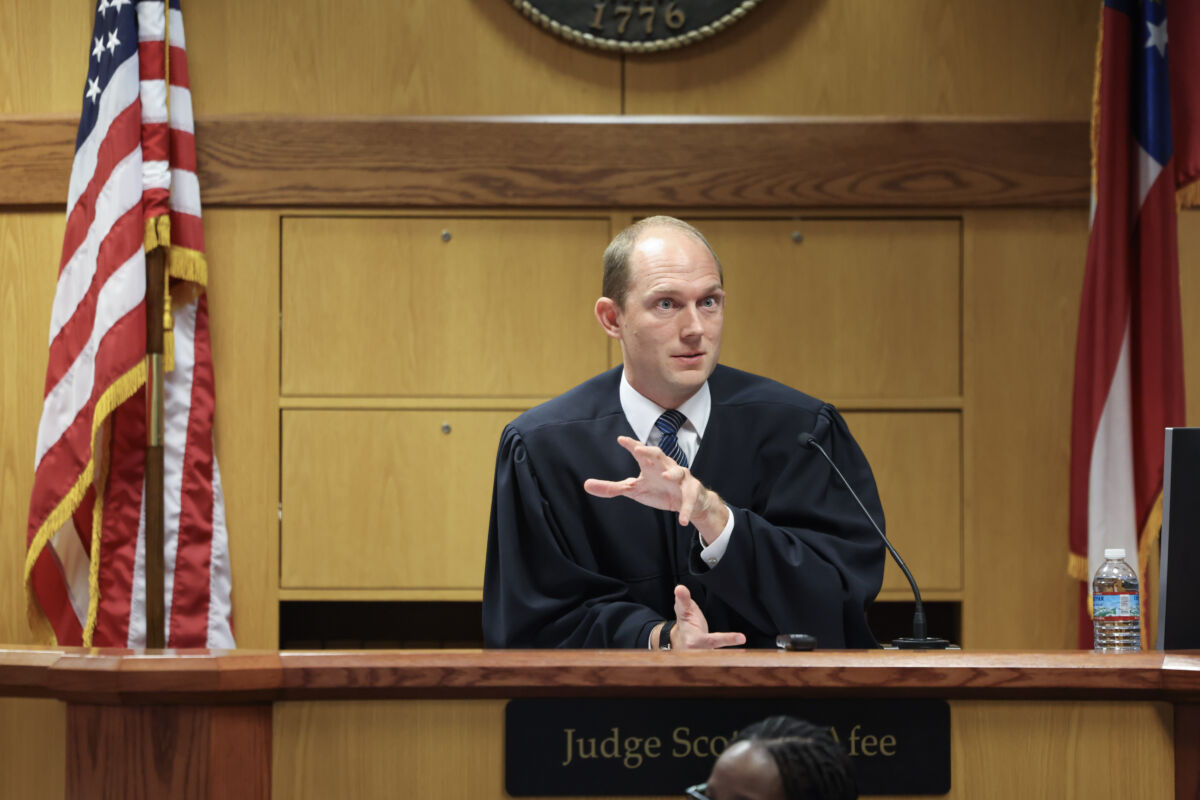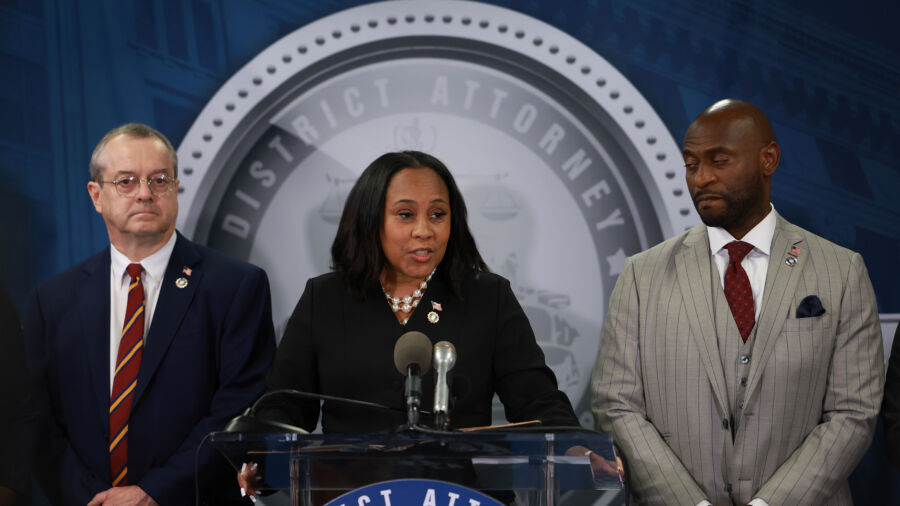On Thursday, the Fulton County District Attorney’s office handed over the names of 30 unindicted co-conspirators listed in the 98-page racketeering indictment that charges 19 defendants for their challenge of the 2020 election results.
Two of the 19 defendants charged go to trial next month and will receive more documents and information from the prosecution in discovery.
The remaining 17 defendants will later receive the list as well, according to the judge.
Fulton County Superior Court Judge Scott McAfee, who is presiding over the case, said the defendants will also have access to some of the witness transcriptions from the special grand jury that recommended charges be brought. They will obtain access to the transcripts previously given by witnesses who will again be called to testify, by Sept. 20 when the list of witnesses needs to be provided to the defense.
Judge McAfee is still considering whether the prosecution will be required to provide the defense additional information.
On Oct. 23, defendants Kenneth Chesebro and Sidney Powell will be tried together. Judge McAfee has officially severed their cases from the other 17 defendants, which includes former President Donald Trump.

Upcoming Trial
Mr. Chesebro and Ms. Powell were both attorneys who advised President Trump when he challenged the 2020 election results, but they had advised him on different matters. Like several other defendants, they are arguing their cases are unrelated to each other.
In the upcoming trial, which will be televised, the prosecution will have to prove that Mr. Chesebro’s advice on organizing an alternate slate of electors, and Ms. Powell’s questioning of voting machine integrity are part of the same “scheme.”
They have also both filed separate motions to dismiss, Ms. Powell arguing that the indictment falsely attributes several acts to her that she was not a part of, and Mr. Chesebro arguing he was acting in his official capacity as a lawyer.
30 Co-conspirators
“The reason why the names of the [co-conspirators] are not already in the indictment, Judge, is because of course it is frowned upon, putting individuals’ names if they are not charged, in the charging document,” the prosecutor Nathan Wade explained, likening it to a “protective order.”
The indictment lists in total 161 acts of racketeering and 41 counts against the defendants.
The unnamed co-conspirators listed are people who were in communication with one or more of the 19 indicted, including unindicted alternate electors, people who met with Pennsylvania legislators to discuss the possibility of election fraud, someone who contacted Georgia officials about the possibility of election fraud, someone from whom Rudy Giuliani posted on Twitter, now known as X as a retweet, people who allegedly tried to investigate voting machines, and several others.
The judge said it was a straightforward request and asked the prosecution to simply hand it over to the defense sitting beside them, and was open to issuing a protective order so that the list is not publicized.
Witness Testimonies
Before the regular grand jury handed up the indictment of the 19 defendants, a special grand jury had convened to investigate whether President Trump and his allies broke any laws in their challenge of the 2020 election results.
That special grand jury issued its final report this January after hearing testimonies from more than 70 witnesses. President Trump had filed motions to quash it, which were denied. Portions of the report were released earlier this year, and more after the 19 defendants were indicted. None of the testimonies were made public.
The prosecution said it would turn over testimony from Robert Cheeley, an attorney who was also indicted in the racketeering case, but that otherwise “any and all” transcripts were not discovery.
The defense requested to inspect all transcripts, and videos if available.
“They’ve already told this court they’re going to call up 150 witnesses, so whether they choose to call those [75 special grand jury] witnesses or not I’m entitled to those transcripts to decide if we want to call them,” Manny Arora, representing Mr. Chesebro, said. “I don’t know what exactly they recorded.”
He argued that the district attorney controls the information the special grand jury reviews, and the secret proceedings may be relevant to his challenge of the validity of the indictment in the first place.
Judge McAfee said he wanted to use the upcoming “trial days efficiently” and asked the prosecution to hand over in advance the testimonies for witnesses they would call, rather than wait “until the minute they’re called” and hold up court proceedings. The witness list needs to be provided to the defense 10 days in advance, and the transcripts should be delivered together, he added.
Mr. Wade noted that the district attorney’s office has not yet received the transcripts for all 75 special grand jury witness testimonies either, but would comply with the judge’s order.
From The Epoch Times

